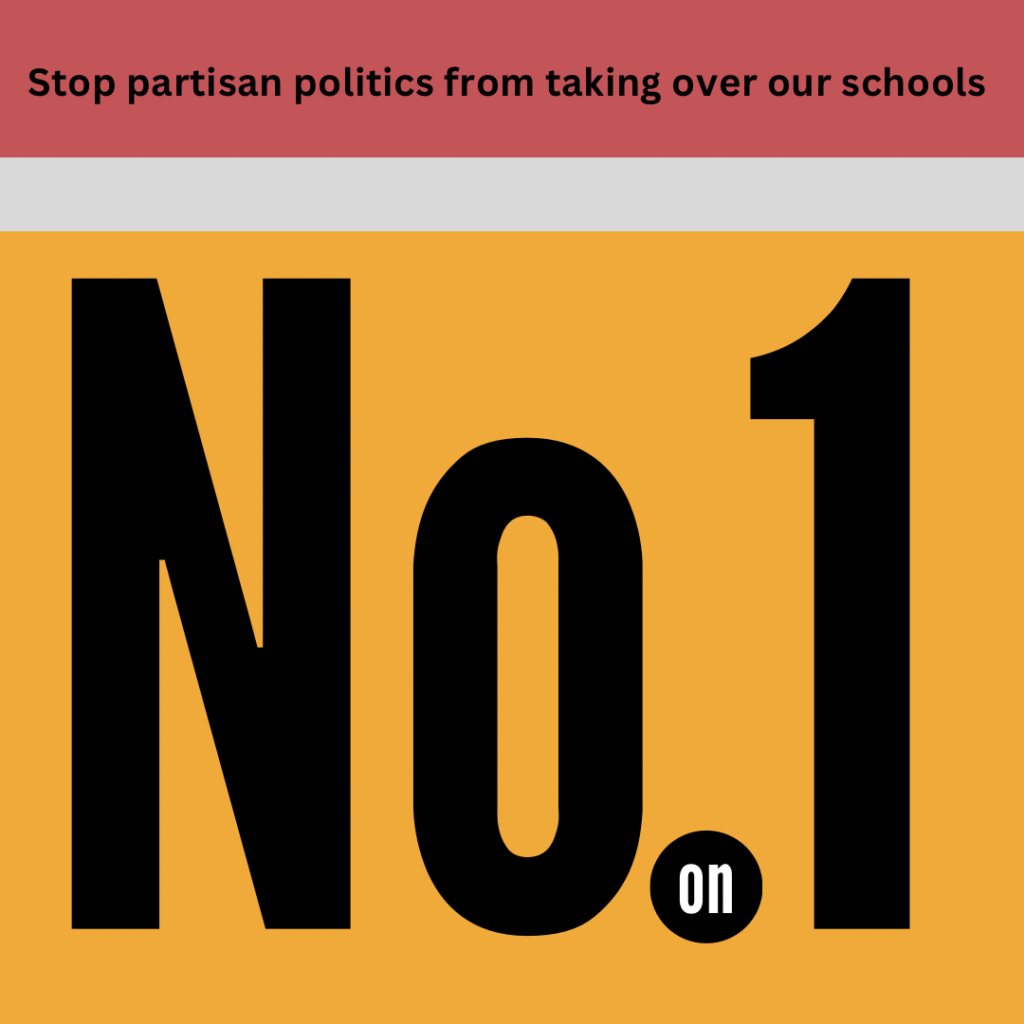ghost candidates and Closed Primaries: Another Great Reason to Vote NO on Amendment 1.
According to a recent investigative report by The Florida Trident, “Florida is infested with ghost candidates” and, if November’s Amendment 1 passes, school board races will become infested as well. The ability to close primaries with ghost candidates, a tactic used by both parties, disenfranchises large swaths of the electorate and is another good reason to vote NO on 1.
Ghost candidates, as explained by Ben Wilcox, research director for Integrity Florida, a nonpartisan research institute and government watchdog:
“Ghost candidates” are candidates who aren’t serious about winning an election, but want to influence the outcome. Wilcox explained there are two types of these candidates: write-in candidates who run to close primary elections and candidates whose names appear on the ballot in an effort to siphon votes from another candidate.
“One thing that both of those types of candidates have in common,” said Wilcox, “is that they’re being used to manipulate elections.”
https://floridatrident.org/trident-analysis-two-million-florida-voters-are-being-disenfranchised-by-write-in-ghost-candidates/
Florida is familiar with both kinds of ghost candidates.
- In 2020, Florida Senator Jose Javier Rodriguez, the incumbent Democrat targeted by the GOP and by Florida Power & Light, lost by 32 votes to Republican Ileana Garcia. A third-party candidate who didn’t campaign and who shared the same last name as Rodriguez drew over 6,000 votes. Former state senator, Frank Artiles apparently made $45,000 in illegal and undeclared campaign contributions to Alex Rodriguez, the “ghost” candidate. Five people — including Artiles — were indicted for allegedly violating campaign finance laws. After several postponements, Artiles is still awaiting trial.
- Current Democratic candidate for House District 106, former state Rep. Joe Saunders, had to sue to keep his aunt, Maureen Saunders Scott, from appearing on the November ballot as “Moe Saunders.” “Moe,” who has filed as a a no-party candidate but lives 300 miles from HD 106, admitted she’d “spoken multiple times by phone with HD 106 incumbent Republican Rep. Fabián Basabe, whom she began interacting with on X in February, four months before she entered the race.”
- A study by Florida Open Primaries, intended to energize voters to urge lawmakers to eliminate the loophole, revealed that between 1998 and 2022, 114 Florida races for Congress and the legislature were closed by write-in candidates. Forty-seven were Republican primaries and 67 were Democrat primaries. From 1998-2022, more than 8 million Florida voters were disenfranchised by the application of the write-in loophole.
- In October of 2017, the Florida Association of Supervisors of Election presented data before the 2018 Constitution Revision Commission showing that in any given election cycle, write-in candidates close primaries that otherwise would be open in approximately 10 of Florida’s 67 counties.
The problem with ghost candidates is discussed in the recent Florida Trident report, entitled “Two Million Florida Voters are Being Disenfranchised by Write-in, Ghost Candidates“:
- “The problem is prevalent statewide. A Florida Trident analysis of candidate filing information and voter registration data found that more than 2 million voters across Florida have been shut out from at least one state or local election this year (2024) because of a loophole in the Florida Constitution that allows write-in candidates to close primaries.”
- “Write-in candidates have closed at least one local race in 20 counties across Florida. Write-in candidates have closed three legislative races in Duval County, including Senate District 5 and House Districts 13 and 14.”
- “The Trident reviewed candidate filing information and voter registration data from the state Division of Elections and all 67 county supervisor of elections’ websites in the state. The findings show write-in candidates have disenfranchised 2 million registered voters in these counties: Brevard, Charlotte, Collier, Duval, Escambia, Flagler, Gadsden, Hernando, Indian River, Lake, Lee, Manatee, Marion, Martin, Putnam, Santa Rosa, Sarasota, St. Johns, St. Lucie, Sumter and Walton.”

The ability to close a primary election whenever a write-in candidate qualified to run for an election was adopted by rule by the state Division of Elections in 2000. Ever since, political parties have used the write-in loophole to keep their primaries closed. The ability to close a primary, allows an individual political party’s voters, and only their voters, to decide an election, thus disenfranchising all other voters, from opposing parties or with no party affiliation at all, from the election decision.
Question for all Floridians: Do We Want To Invite Ghost Candidates to Our School Board Elections?
In November 2024, Floridians will be asked to vote on Amendment 1, the Partisan School Board Elections Amendment. The legislators who sponsored the amendment, suggest their amendment is solely about transparency and identifying candidates by their partisan affiliation will provide the voter with more information to “let them make a decision about vetting a candidate.” The real impact, however, will be giving political parties the power to close school board elections to the general public, using ghost candidates and other political shenanigans to manipulate elections and disenfranchise large swaths of voters from electing the individuals they want to operate, control and supervise their community’s most valuable asset, their public schools.
The beauty of public schools is that they belong to all of us. Public schools are available to all students, regardless of life circumstance – they serve the entire community. The recent “culture war” attacks have been damaging to public schools and enhanced partisan divisions in communities. To retain America’s vision of a high quality system of free public schools, available to ALL children, it is essential that communities resist divisive partisan rhetoric so their public schools can retain their broad community support. We cannot allow public education to become a partisan issue, supported by only half of Americans. To be successful, public school must continue to serve the entire community. We should be actively working to make school board races LESS partisan, not more so.
In November, Vote No on 1.

